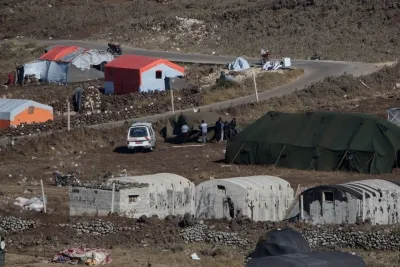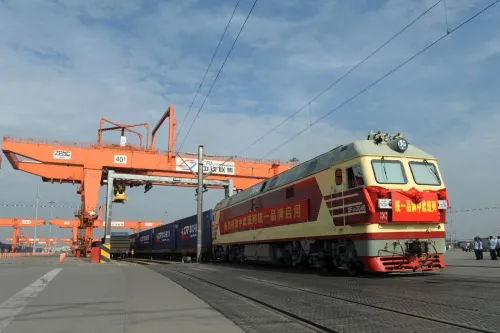Concerns Over Workforce as Syrian Refugees Return to Turkey

Synopsis
Key Takeaways
- Refugees make up 20-25% of the labor force in Turkey.
- Around 1 million Syrians are active in low-skilled jobs.
- Turkey has spent $40 billion on refugee support.
- Labour shortages could impact agriculture and textiles.
- Industry leaders expect a gradual transition.
Gaziantep, Jan 28 (NationPress) With Syria beginning to recover from its 13-year civil war, the slow return of Syrian refugees from Turkey is igniting concerns about potential labour shortages in vital sectors of the Turkish economy that depend on low-wage labor, according to industry experts and analysts.
“Syrian workers represent roughly 20-25% of our workforce at this time; their large-scale return could certainly have repercussions,” stated Beyhan Duran, a managing agent from a livestock farm in southern Gaziantep province, during an interview with Xinhua.
Duran mentioned that this situation could drastically impact Turkish businesses that rely on Syrian labor. Although only a limited number of Syrians have returned thus far, he anticipates that most will eventually repatriate as conditions improve in Syria, according to Xinhua news agency.
Gaziantep, a significant city in Turkey located near the Syrian border, has historically depended on the presence of around 450,000 Syrians.
Metin Corabatir, director of the Ankara-based Research Center on Asylum and Migration, estimates that there are approximately 1 million Syrians currently engaged in the Turkish labor market, mainly in low-skilled and poorly paid informal jobs.
In light of recent events, thousands of the three million Syrian refugees have returned to their homeland, while others are still evaluating their next steps, particularly after the winter.
Corabatir noted that most returnees appear to be examining the situation in Syria, which remains ravaged by a decade of civil unrest, before deciding whether to bring their families back.
This shift may alleviate some financial burdens for Turkey, which has invested $40 billion in supporting refugees, despite receiving aid from the EU. However, industries such as agriculture and textiles could face challenges in filling labor shortages. “Employers depend on Syrians for inexpensive labor. A sudden departure would create issues,” remarked Osman Ahmed, a 33-year-old Syrian telecom worker in Gaziantep. He added that Turkey's economic difficulties, including rising rents, are prompting some refugees to leave while others remain for secure employment.
“Some Syrian enterprises might also shift their operations back to Syria,” he noted.
Nevertheless, industry leaders are minimizing immediate concerns. Adnan Unverdi, head of Gaziantep's Chamber of Industry, indicated that any transition would be gradual.
“Their return is anticipated to be as gradual as their arrival. We do not foresee everyone returning. Even if 70% depart, the remaining 30% are expected to stay,” he stated in a recent interview with Daily Sabah.









